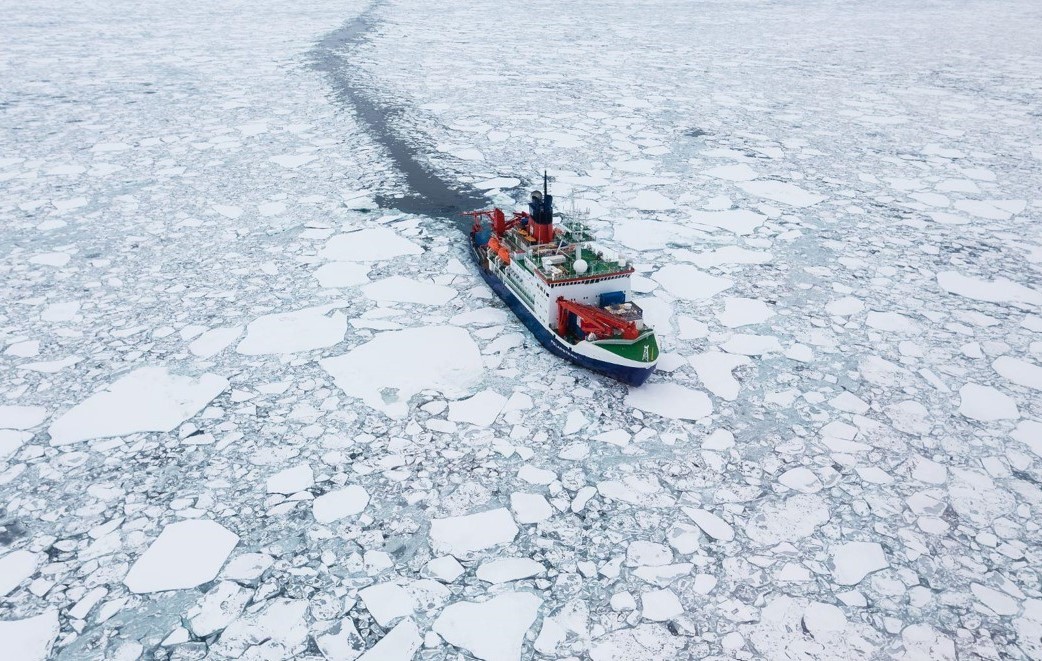The MOSAiC expedition, awarded the Arctic Circle Prize 2022

Researches from the Institute of Space Studies of Catalonia (IEEC — Institut d’Estudis Espacials de Catalunya) at the Institute of Space Sciences (ICE-CSIC), together with experts of the Institute of Marine Sciences (ICM-CSIC) and other international research centres, participated in MOSAiC between 2019 and 2020.
Arctic Circle is the largest network of international dialogue and cooperation on the future of the Arctic. It consists of governments, organisations, corporations, universities, think tanks, environmental associations, indigenous communities, among others, that seek to delve into the status and functioning of this remote enclave on Earth.
The former Secretary-General of the United Nations, Ban Ki-moon, and the former Secretary of State of the United States, John Kerry, are some of the dignitaries that have received the award before because of their commitment to fight the climate crisis.
The first complete picture of the climate processes in the central Arctic
The MOSAiC expedition (acronym of ‘Multidisciplinary drifting Observatory for the Study of Arctic Climate’) took place between September 2019 and October 2020 aboard the German research icebreaker Polarstern, that sailed from Tromsø, Norway, to spend a year drifting through the Arctic ocean to register hundreds of environmental parameters with unprecedented frequency and accuracy. This allowed researchers to obtain the first complete picture of the climate crisis’ impact on the Arctic, which is warming twice as fast than the rest of the planet.
The Earth Observation group from ICE-CSIC was responsible for an experiment installed on the ice floe to study the interaction between sea ice and satellite navigation signals (such as GPS). "The equipment was designed to be able to operate in the extreme conditions of the Arctic, autonomously and almost continuously," explains ICE-CSIC and IEEC researcher Estel Cardellach.
Images: German research icebreaker Polarstern in Arctic sea ice, September 28th, 2019. Credits: Alfred-Wegener-Institut / Stefan Hendricks
